Quite clearly, between two countries which share an adversarial relationship, there is nothing that can ever be called a ‘personal’ visit by one head of state to the other country.
And between India and Pakistan, this is quite simply impossible because in this era of 24x7 TV, a media circus will inevitably surround such a visit giving it saturation coverage and analysing every turn of the head, every wink, nudge, shrug, nod and what have you. At the political level, such a ‘personal’ or even a ‘non-official’ visit (for instance a cricket match) serves as a convenient excuse for the leaderships of the two countries to touch base and use the occasion to confabulate with each other. Thus it is that the moment it became known that Pakistan's President Asif Zardari wanted to go on a pilgrimage to Ajmer, the Indian leadership not only extended all due protocol to him but also graciously invited the Pakistani president to stop over in New Delhi en route to Ajmer for a meeting followed by a lunch with the Indian Prime Minister.
The official line in both Islamabad and New Delhi is that Mr Zardari’s visit is purely personal and the Indian PM is hosting a lunch for him only to extend courtesy to a visiting head of state. There is really nothing on the ground to suggest that the officials are burning the midnight oil to prepare for some kind of intense dialogue. And yet, hardly anyone in the two countries is taking the official line on face value. Notwithstanding denials by officials who are going blue in the face trying to dispel any notion that the meeting between the Pakistani President and Indian PM has been elaborately choreographed, most analysts are convinced that the pilgrimage is actually a smokescreen for holding direct high level talks between Mr Zardari and Prime Minister Manmohan Singh.
Asides the fact that political leaders of India and Pakistan are notorious for entering into a dialogue without adequate preparations – Agra 2001 is a prime example – the speculation that the meeting between Zardari and Manmohan Singh will give some sort of a push to the dialogue process between the two countries is also fuelled by the recent breakthrough in trade relations with Pakistan moving to a negative list of trade items pending the grant of MFN status to India. This was a long standing demand of India and is being seen (quite wrongly, it must be said) as a concession made by Pakistan. What is more, ever since the obnoxious Shah Mehmood Qureshi was removed as foreign minister and was replaced by Hina Rabbani Khar, Pakistan has been making all the right noises towards India, sending signals that it is genuinely interested in normalising relations with its eastern neighbour. Although the Indian permanent establishment is rather sceptical about genuineness of Pakistan's professed intentions for good relations, at the political level the Indian leadership appears to be falling over itself in trying to reach out to Pakistan and clasp the extended hand. Not surprisingly then, observers are waiting to see what, if anything, comes out of the meeting between Zardari and Manmohan Singh. And it is precisely this expectation, rather anticipation, that India needs to guard against.
To some extent, there is recognition in India that Zardari probably doesn't have the political capital to effect any major breakthrough with India and therefore it would be unrealistic to expect him to deliver on anything substantial on issues of critical importance to India. Many in India would also argue that any assurances that Zardari gives to India on the issue of terrorism cannot be taken seriously because he just doesn't have the power to fulfil these assurances. After all, the terror machine in Pakistan is controlled by the military establishment of that country and given the frailty of the political system, and his own precarious position, it is unlikely that Zardari can or will take on the powerful Pakistan army in order to live up to any commitment he makes to India. As a result, no one should be surprised if the issue of terrorism is raised in only a very pro forma manner by the Indian side.
Paradoxically, it is this palpable weakness of successive Pakistani leaders that serves as a trump card for them in their dealings with India. Chances are that Zardari will play up on both his sincere desire for good relations with India as well as his weak position within his own country to try and extract some major concession from his Indian interlocutors, without of course conceding anything in return. In other words, what Zardari will do is that when pressed on the issue of terrorism, he will explain his difficulties and constraints in addressing this issue immediately. He will in all likelihood play the ‘Mullah-Military card’. His pitch will be: “help me by giving me something that I can take back with me to my country and marginalise the military-mullah alliance on the back foot; without such a grand gesture from India the mullahs and the military will destabilise my government, depose me and take over power and then India will have to contend with a radical or at least a very hard line government in Pakistan, dominated, if not run, by the military-mullah alliance”. He will wave the trade deal as a sign of his commitment and in turn seek concessions on what some ignorant analysts, commentators and other sundry peaceniks call ‘low hanging fruit’, namely Sir Creek and Siachen, on which there is a false propaganda that a deal is all set to be inked if only the Indian leadership summons the political courage and displays the political will to do so. This is exactly the tactic used by successive Pakistani leaders with their Indian counterparts and this has always been successful in extracting concessions from India – Ayub Khan used this after the 1965 war, Bhutto after 1971, Benazir Bhutto and Nawaz Sharif when they were at the helm of affairs.
Having fallen for the same beguiling Pakistani logic time and time again, India now needs to put a stop to this Pakistani version of ‘Apres moi le deluge’ and no better occasion to do this than Zardari’s forthcoming visit. While India should wish Zardari well – he is probably the most visionary leader Pakistan has got in a long, long time and his policies, domestic and external, hold the potential for making Pakistan a ‘normal’ state – his survival is neither India’s responsibility nor is it India’s primary interest vis-a-vis Pakistan, and most certainly not if this has to be achieved at the cost of surrendering India’s vital security interests or compromising on India’s sovereignty.
The big problem however is the obsessive quest of the current Indian dispensation to settle all the problems with Pakistan even if it means sacrificing India’s interests in the process. No one should therefore be surprised if India once again makes the same old mistake of trying to rescue a Pakistani leader by making concessions and ending up with the worst of both worlds – not only giving the Pakistanis what they wanted at India’s cost, but also failing to save the person for saving whom these concessions were made in the first place.
Author is Senior Fellow in Vivekananda International Foundation
Published Date : 6th April, 2012

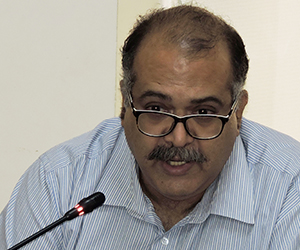


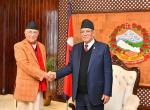
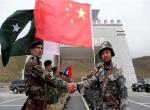


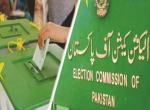
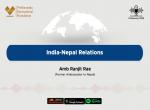
Post new comment